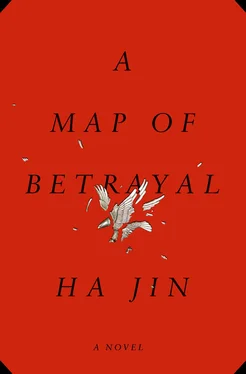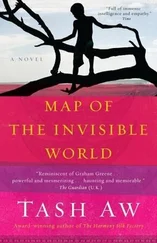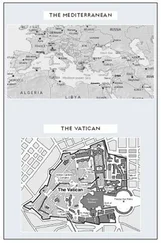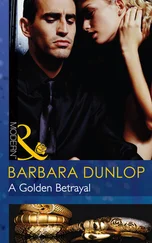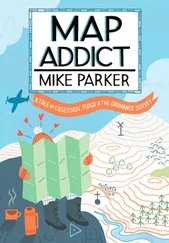“That was due to—”
“Yes or no?”
“Yes.”
“How much did you get paid for that?”
“Five hundred dollars.”
“So for that paltry amount of money you sold more than a dozen lives to Communist China?”
“It didn’t happen like that. I didn’t know the consequences of the intelligence. I assumed those men would go to Taiwan anyway. That was the first time I passed information to China. Perhaps I might be guilty of an accidental act. But I never did that kind of thing again after I came to know about those returnees’ incarceration and deaths.”
“So you were aware that some of them had been executed?”
“Yes, later I was informed of that.”
“Mr. Shang, did you reveal to Communist China the communications plans and the code names of the secret agents dispatched to destroy China’s nuclear facilities in 1965?”
“Yes, I did. I had their mission stopped on purpose, because it might have started the Third World War. That prospect terrified me. What could the United States have gained from such a war? Nothing but destruction of lives and property and a waste of taxpayers’ dollars. So I would do my damnedest to prevent that mission from being carried out. For that I don’t feel one iota of guilt.”
Some in the audience chuckled and a few cheered. The judge, his face turning puce and his goatee tilting up a little, banged the gavel for order. When the room was quiet again, the flat-cheeked cross-examiner went on to ask about the information on missiles and aircrafts that the accused was charged with stealing. To the question of the technological secrets, Gary answered in a haughty tone, “I was interested only in strategic intelligence. I am not a petty thief — that sort of information is beneath me.”
A pregnant silence filled the courtroom. It was drizzling outside, rivulets running intermittently down the windows, beyond which the pointed tips of cypresses swayed a little. The sky was so saturated it looked as though it was about to collapse in a downpour.
Without difficulty the jury reached their guilty verdict unanimously, and the judge gave Gary 121 years in prison and more than three million dollars in fines. The jurors also stated that they took umbrage at the attitudes of some CIA officers, who seemed to have stuck up for the Red spy, the monster of deception, but not for the truth or for the interests of our nation. One of them, a fortyish black woman with arched eyebrows, even voiced her suspicion of complicity.
The convicted man was stolid, his face expressionless, though his tired eyes appeared narrower and his temples were throbbing. He was biting his lip in order not to cry. For a brief moment everything went blurry around him. He leaned forward and clasped his head in his hands.
Afterward, in the lobby of the courthouse, when a woman reporter asked Gary what he’d like to say to the Chinese government, he cried out, “I appeal to Deng Xiaoping to intervene on my behalf. President Deng, please bring me home!”
Those words were published in several major newspapers the next day. But at a news conference, the Chinese ambassador to Washington responded negatively to the question about Beijing’s connection with Gary Shang, insisting, “Let me reiterate, I never heard of that man. China has no spy in the United States at all, so we have nothing to do with him. All the accusations against the Chinese government are baseless, fabricated by those people hostile to our country.”

“Did you go see your father in prison?” Ben asked me, his hands in his jeans pockets. We were strolling on Wollaston Beach with Boston’s skyline in view, a bunch of skyscrapers partly obscured by the dissipating mist in the northwest. An airliner was descending noiselessly toward Logan Airport. The drizzle had let up, the clouds opening and revealing patches of blue.
I said, “I visited him once, in late November of that year, but I had to rush back to BU. I was teaching a course and had to meet my class. Dad didn’t say much to me because a guard was standing beside him and there was glass and steel wire between us. We spoke over a phone. He kept saying ‘I’m sorry’ and was tearful. I went through the visit as if I were drugged, unable to find words. That was the first time I’d ever seen him in tears, and at the end of the meeting he blew me a kiss and forced a smile. My mother saw him more often and made sure that he received proper medication and also had his ulcerated gum treated. I wished I could have stayed home longer so that I could visit him again.”
“He must’ve died miserably.”
“I was devastated when I heard about his suicide. I had a breakdown and couldn’t help my tears whenever I saw an older man.”
Ben had read that Gary smothered himself with a trash bag tied around his neck with two connected shoestrings. (He had skipped breakfast so that his body might not be messy. He lay on his bed in the solitary cell and died without making any noise.) We had talked about his death the previous night, when Ben finally confessed he was indeed a Chinese spy, though a minor one.
The ebbing tide kept the bay flat. Ben continued, “What touched me most is this sentence he said to his cross-examiner: ‘I am not a petty thief.’ I wept when I read that. It reminded me that I was a petty thief. Recently I acquired a pair of new night-vision goggles just issued to the U.S. Marines, an F-18 manual, a list of the public radio frequencies, and some other stuff. I’ve been stealing technological secrets — a petty thief indeed.”
“On some level Gary was a conceited man.”
“He had to have a high opinion of himself or how could he survive? A spy of his kind had to convince himself of the importance of his mission so that he could continue in the face of adversity.”
Ben’s words reminded me of a sentence in Gary’s diary that had baffled me for a while: “For me, self-sacrifice is sweet.” My father seemed to believe in the grandeur of what he was doing. In spite of his remarkable intelligence, he lived in a fog, possessed by an ancient emotion whose validity his reason couldn’t penetrate. Indeed, an exalted vision or illusion might make pain bright and supportable.
Farther along the beach a little girl cried out. She was carrying a miniature saffron bucket with a spade in it and wobbling toward her mother, who was sitting on a boulder and flipping through a fashion magazine. The sun had come out, and the sand was turning whitish. Ben went on about Gary, “I still think he gave up too easily. China might have made a rescue effort to get him repatriated.”
“You’re too naïve,” I said. “Didn’t the Chinese ambassador deny that China had anything to do with him?”
“But that couldn’t be the final word. My grandfather held at least the same rank as the ambassador, probably even higher. That is to say, the ambassador had no right to decide Gary’s fate. The official denial might just have been routine bureaucracy. Once the media quieted down and the case was out of public view, there might have been a way to get him out of jail and back to China.”
“But the ambassador represented the country.”
“Look, even for small potatoes like me there’s an exit plan in the event of emergency. My grandfather’s case couldn’t be that simple.”
I was about to ask Ben how he could extricate himself, but I refrained. A pair of mottled seagulls took off from the teeth of the soft waves and let out sharp squawks. They were suspended in the air, their wings hardly moving. I said, “Maybe Suzie Chao knows more about this. Last winter when we talked, she said she hated the Communists because they had abandoned your grandfather.”
Читать дальше
